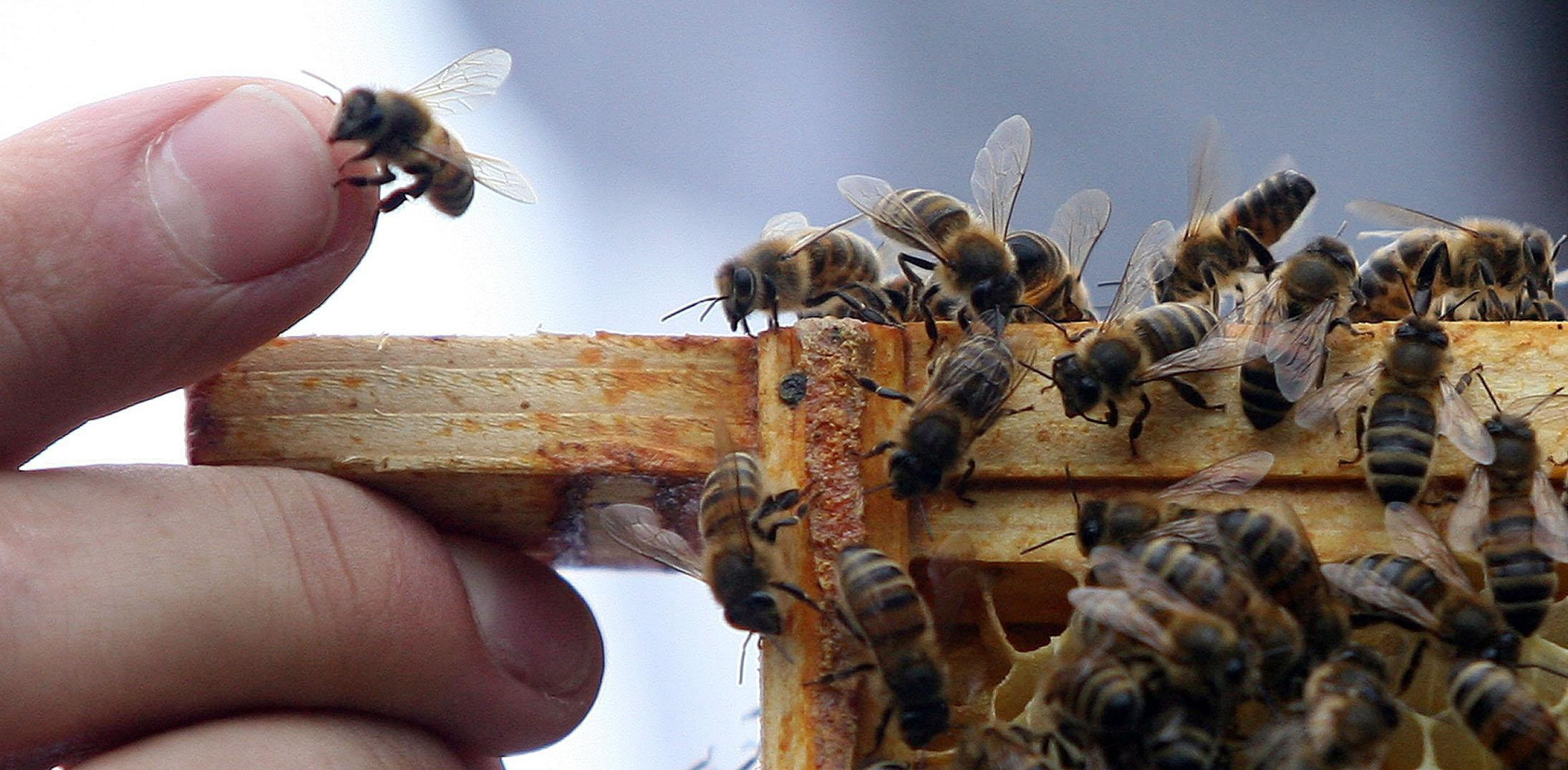Honeybees due to swarm a month late
The long winter and cool, late spring means honeybees are likely to be swarming up to a month later than normal, experts have said.
Honeybees naturally swarm in the spring to establish new colonies, but the weather this year means the swarming season could be delayed by around four weeks, the British Beekeepers Association (BBKA) said.
When it comes, it will be important to collect the swarms and give them new homes in hives, particularly after a year in which winter losses of the insects are expected to be bigger than ever, the BBKA said.
Bad weather last year, combined with the long winter and late arrival of spring this year, will have reduced the amount of food colonies have been able to collect, putting them at risk of dying out.
The organisation is urging members of the public to learn how to spot a honeybee swarm, which is made up of a queen and thousands of worker bees, and to contact a beekeeper when they see one.
People should not be alarmed if they see a swarm, as the honeybees are doing what they do naturally and as long as they are not provoked they will not do any harm, the BBKA said. But if left to their own devices they may set up home in the nearest convenient spot, which could be a chimney or somewhere else inaccessible, and are unlikely to survive on their own.
Jane Moseley, BBKA general secretary, said: “Honeybees swarm as nature’s way of increasing the number of colonies. With honeybee numbers under thereat we can ill afford to lose swarms. As long as it is safe and practicable, beekeepers are keen to collect them and give them a new home.
“Swarms left uncollected are unlikely to survive, which means lost honey production but even more importantly, fewer of these hard working insects to pollinate crops, including our favourite fruits and vegetables.”
The BBKA warned that people often mistake other groups of other bees or wasps for honeybee swarms, and said members of the public can check the organisation’s website for pictures and details to help them determine if they have seen a swarm of honeybees.
The website also has information on how to contact a beekeeper if they spot a swarm at: http://www.bbka.org.uk
Latest posts by Sally - Silversurfer's Editor (see all)
- The Boom Radio All Time Chart - April 11, 2025
- Discover Oregon: Your Ultimate Adventure Awaits with Non-Stop Flights from London Heathrow - April 11, 2025
- Discover the beauty of Scotland with Largo Leisure Holidays - April 10, 2025
- Do you feel happy living in the United Kingdom? - April 10, 2025
- Planning ahead for peace of mind - April 9, 2025




















